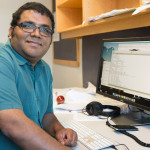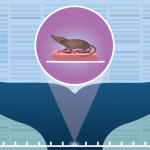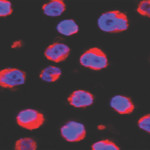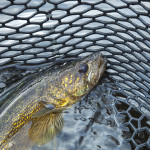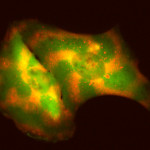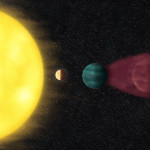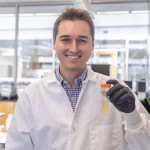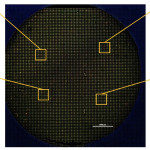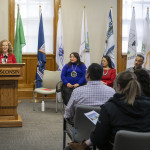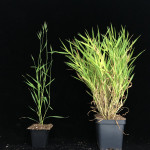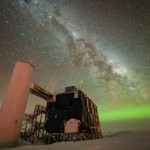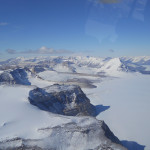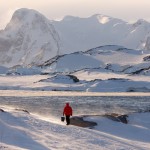Category For media
Researchers reveal evolutionary path of important proteins
New research from the University of Wisconsin–Madison decodes the evolutionary pathway of regulatory proteins, the molecules that help control gene expression.
Some lymphomas become resistant to treatment. Gene discovery may offer path to overcome it.
Researchers have been trying to understand why and how certain lymphoma treatments often stop being effective. Lixin Rui and his team believe they've found the reason — and a potential alternative treatment.
Q&A with Prof. Steffi Diem, a UW–Madison fusion scientist and 2024 U.S. Science Envoy
Diem, a fusion energy expert, specializes in heating the ultra-hot fuel for fusion and confining it within efficient and compact magnetic bottles. Her selection as one of four new U.S. Science Envoys highlights growing recognition of fusion's role in building a clean and renewable energy future.
Walleye struggle with changes to timing of spring thaw
Newly-hatched walleye are hungry fish, dependent on meals of tiny zooplankton during the spring. As Midwestern lakes thaw unusually early or late, these prized fish can miss the dinner bell.
Two UW–Madison researchers receive prestigious Sloan Fellowships
UW–Madison’s 2024 Sloan Fellows are Ke Fang, assistant professor of physics, and Xiangyao Yu, assistant professor of computer sciences.
Programming cells to organize their molecules may open the door to new treatments
Biochemists at UW–Madison have developed a tool to control how certain proteins move in mammalian cells, a discovery that has multiple potential uses for treating or studying diseases by engineering specific cellular activities or studying cellular activity in a living organism.
Earth-sized planet discovered in ‘our solar backyard’
A team of astronomers have discovered a planet closer and younger than any other Earth-sized world yet identified. It’s a remarkably hot world whose proximity to our own planet and to a star like our sun mark it as a unique opportunity to study how planets evolve.
UW–Madison receives $150 million grant to to lead nationwide Alzheimer’s disease study
The five-year study will provide state-of-the-art imaging and blood-based biomarkers for researchers around the world to study and advance the field of Alzheimer’s and related dementias. The work is also designed to shed light on mixed dementia, where more than one neurological disease is contributing to dementia.
Multitasking microbes: UW–Madison scientists engineer bacteria to make two valuable products from plant fiber
UW researchers have engineered bacteria that can produce two chemical products at the same time from underutilized plant fiber. The discovery could help make biofuels more sustainable and commercially viable.
Stem cell technology developed at UW–Madison leads to new understanding of autism risks
Ashton says researchers using technologies like the RosetteArray are finding that the risk factors for autism spectrum disorder are boiling down to a couple of core pathways, that seem to have roles very early in human brain development, which is helpful information as researchers work on treatments.
New research offers insights into the biochemistry that makes grasses flower
The genetics of plant flowering have long been studied in model species of the mustard family. Now, scientists at UW–Madison have identified key genes responsible for flowering in a grass species.
Federal physics advisory panel recommends funding next generation IceCube observatory, other major experiments
A group of scientists tasked with advising the federal government's investments in particle physics research is recommending that the United States fund a planned expansion of the IceCube Neutrino Observatory, an international scientific collaboration operated by the University of Wisconsin–Madison at the South Pole.
Antarctica’s ancient ice sheets foreshadow dynamic changes in Earth’s future
Identifying how and why Antarctica's major ice sheets behaved the way they did in the early Miocene could help inform understanding of the sheets' behavior under a warming climate.
Media advisory: COP28 experts available
FROM: Veronica Rueckert, national media manager, rueckert@wisc.edu

